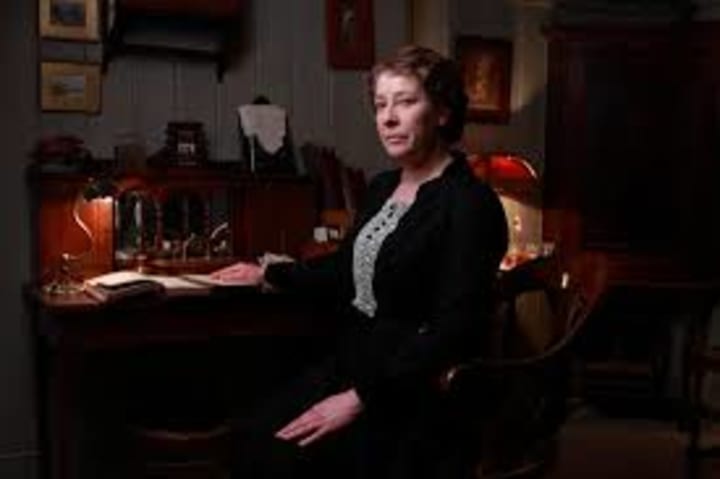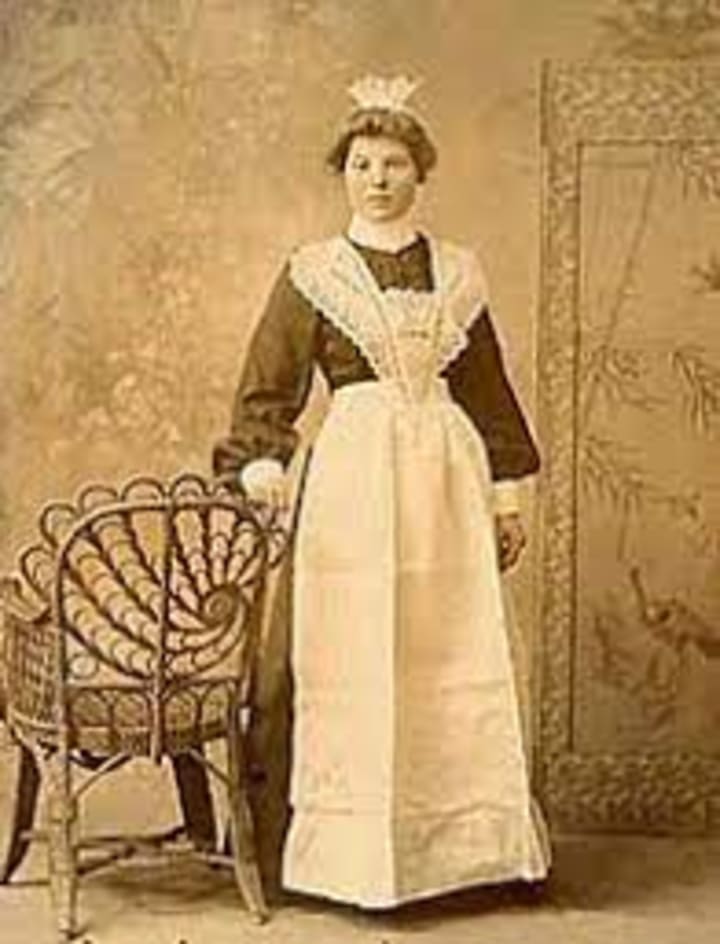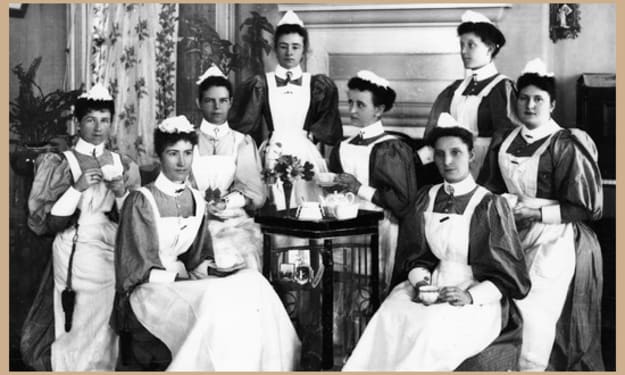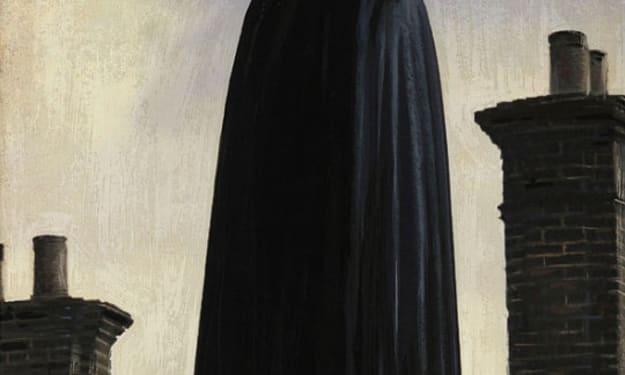What's In A Day?
"The important thing is not what they think of me, but what I think of them" Queen Victoria

The housemaid started her work between 5.30am and 6am, taking tea to the Lady’s maid and the Housekeeper and by 6.30am they started to light the fires, clean the ‘public’ rooms, make the beds, sweep, dust and clean the bedrooms, and the list goes on to even polishing the windows and cleaning the marble floors, as well as making sure the fires stoked properly. This is a 14 to 16 hour day — and all for £22 a year!
The scullery maid never leaves the kitchen when working and is considered the lowest-ranking female servant. Her day begins at 4am. She cleans the grates and lays out the fire to heat the water for cooking on a coal-fired range. The scullery maid must dust and clean the kitchen before the cook starts work. Then all day, it is washing up, preparing the vegetables and generally making sure the kitchen is as clean as possible. Again, the hardest working servant who got paid the least money — £10 a year!
The Butler is the highest-ranking servant in the house. He is responsible for all the male staff and is the ‘team leader’ of the servants. The right-hand man of the Lord, the butler is respectful. His many duties include:
Serving meals and wine
Caring for the wine cellar
Checking the lamps and candles
Is responsible for the family silver
Is on call 24 / 7.
The butler has often worked his way up so his authority is never questioned. £50 a year!

The Housekeeper was considered the highest-ranking female servant, a little lower than the butler and who took her orders from the mistress or Lady of the house. In charge of all of the female staff, the housekeeper’s job seemed to be a never ending task. Being called “Mrs.”, even if the housekeeper wasn’t married, she was looked up to by all of the female staff. The rank of a married woman was considered more important. In the series Downton Abbey, Mrs.Hughes, the housekeeper, seemed to have more keys than even the butler and was forever either at her desk doing the accounts, or running around, doing some endless task. All of this for £40 a year!
How different all of this seemed when compared to his Lordship’s day. Being engrossed with the day to day running of the estate (farms, tenants, etc), the Lord had an estate manager to help him, as well as being in contact with solicitors and accountants every day. Also, his Lordship may be in Parliament and sit in the House of Lords, plus he may act locally as a Justice of the Peace. A very busy day but a ‘clean’ one.
Again, how different her Ladyship’s day is to the scullery maid. The Lady had to organise the house, how it was run, although she entrusted a great deal to the housekeeper. If she was a mother, the Lady would have to allocate times in which to see her children, leaving them in the care of the nanny for most of the day and night. The Lady spent a large part of her morning in meetings with the housekeeper and the cook (separately of course) and then moved on to her own personal activities — charitable works, dress-fittings, visiting and keeping up with her considerable correspondence. Busy enough but totally different to the scullery maid’s day.
The young master (the son), who was the heir, would be sent to Oxford (for example) and when home, ‘learn the family estate’.

For the young lady (the daughter), life could become tedious. In the same series, Lady Edith doesn’t know what to do with her time, so much so that her grandmother tells her: “Edith, you are a young woman with reasonable ability, stop whining and find something to do!”
I’ll bet the parlour maid wouldn’t mind having just one day like that.

So here we see the two very different classes and roles. One who worked all hours, doing all sorts of jobs for ‘pay’. The other having a much slower life but doing, possibly, what they wanted to do. I wonder who was the happiest?
About the Creator
Ruth Elizabeth Stiff
I love all things Earthy and Self-Help
History is one of my favourite subjects and I love to write short fiction
Research is so interesting for me too
Enjoyed the story? Support the Creator.
Subscribe for free to receive all their stories in your feed. You could also pledge your support or give them a one-off tip, letting them know you appreciate their work.
Reader insights
Outstanding
Excellent work. Looking forward to reading more!
Top insights
Compelling and original writing
Creative use of language & vocab
Easy to read and follow
Well-structured & engaging content
Excellent storytelling
Original narrative & well developed characters
Expert insights and opinions
Arguments were carefully researched and presented
Eye opening
Niche topic & fresh perspectives
Heartfelt and relatable
The story invoked strong personal emotions
On-point and relevant
Writing reflected the title & theme






Comments (1)
I still think I would not mind working on staff at least I would know my duties and just be just as bored as the 'family' but with something to do.